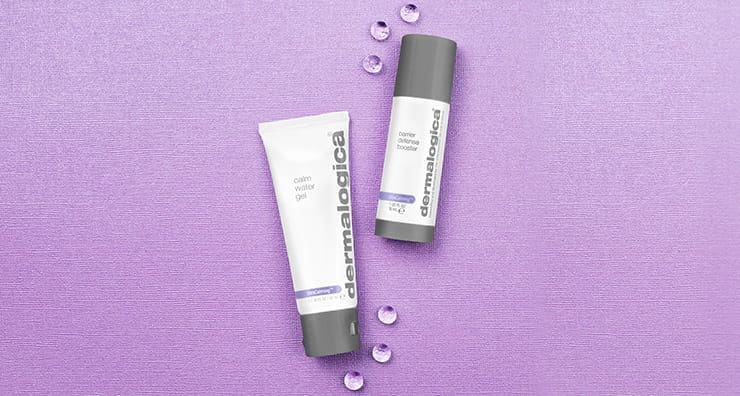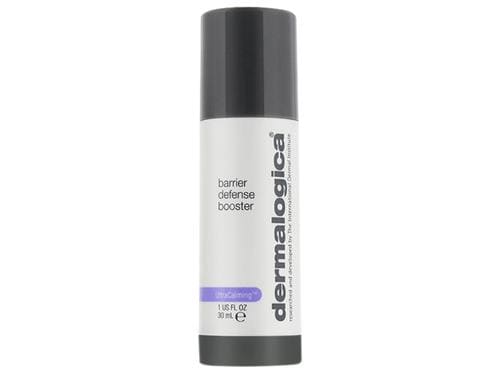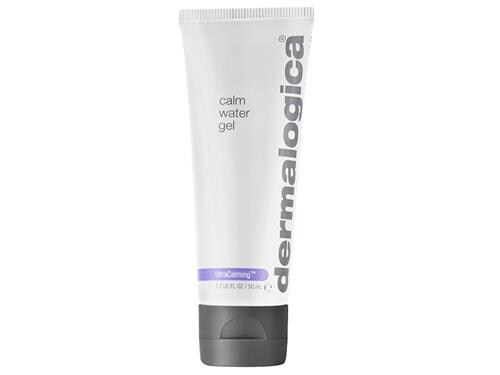
About the Author
Jill is a content writer for LovelySkin. She loves reading up on the latest beauty trends, going to concerts with her husband and baking with her three kids.
Other Posts by JillWelcome to LovelySkin.com.

Dry, flaky, itchy skin doesn't have to be an inevitable part of winter. The team from Dermalogica is here with tips to keep your skin soft, soothed and comfortable.
Do you hide behind the painful (and often embarrassing) symptoms of sensitive skin? Whether your skin is sensitive or sensitized, the symptoms are actually the same:
-Thin skin texture with a translucent appearance.
-A feeling of tightness, which can indicate dehydration and lead to skin reactions from products.
-Redness or blotchiness that signals over-reactive capillaries or a tendency toward rosacea.
-Flaking, peeling or cracking on the cheeks and forehead. This indicates dehydrated skin and impaired barrier function.
-Flushing and itching, or burning sensations, which can also be a sign of over-reactive capillaries.
Small, rash-like bumps or breakouts (not to be confused with acne breakouts). Another common trait of sensitive—and sensitized–skin is a compromised lipid barrier. A healthy lipid barrier helps keep skin healthy by holding water in and keeping environmental pollutants and microbes out. Picture your skin cells as tiny bricks and lipids are the mortar holding them together. When your skin is exposed to triggers that compromise the barrier, the result is redness, dryness, irritation and discomfort, otherwise known as – you guessed it – sensitive skin.
But did you know that there are actually two different scenarios that lead to these not-so-fun symptoms? You can struggle on the daily with irritated skin based on your genetics (AKA sensitive skin) or you can get sensitive skin flare-ups caused by outside factors in your environment (AKA sensitized skin.)
Knowing more about what causes your skin to react will help you determine if it is sensitive or sensitized, so you can find out how to keep your skin strong and healthy.
Sensitive skin is a weak protective function of the skin that can be genetically predisposed. When skin is sensitive its protective outer layer lets irritants, microbes and allergens pass through, causing adverse reactions like stinging, pain, redness or flushing. Genetically sensitive skin is considered more delicate because it has a lower amount of pigment, a thin epidermis, and blood vessels close to the skin surface, hence the appearance of redness. You may notice that you’re also prone to asthma and allergies.
Sensitive skin can be passed down through generations – but there are ways to manage it.
Sensitized skin can be triggered in anyone, regardless of your genes, as it’s actually a reflection of your environment. Frequent irritability from lifestyle, irritants, cosmetic ingredients including alcohol, lanolin, fragrance and artificial color and other external factors can contribute to sensitized skin. Ready for the good news? Avoiding your individual triggers can actually reduce or eliminate your symptoms. When these triggers can’t be avoided (think pollution, environment and temperature sensitivity), your symptoms of sensitized skin can be managed through skin care and lifestyle changes.
Your skin can be affected by any of the following factors:
Lifestyle (this includes stress, diet, smoking, dehydration, alcohol, reactions to cosmetic ingredients, trauma from laser resurfacing or peels, and over-processing caused by excess exfoliation or non-pH-balanced products)
Environment (pollution, airborne allergens, weather, and sudden changes in climates or microclimates – like transfer from cold, dry winds outdoors to dry heat indoors)
Physiology (stress, hormonal fluctuations)
Disease (rosacea, eczema, psoriasis, seborrheic dermatitis) – If you are experiencing flaking skin with conditions like seborrheic dermatitis, schedule an appointment with a dermatologist. They can determine if you are having allergic reactions through patch testing and can also give you additional treatment recommendations.
No matter the trigger, strengthening your skin’s lipid barrier will help reduce the severity and frequency of your reactions. Here are a few new products from Dermalogica that can help:
Dermalogica’s new UltraCalming™ duo was formulated specifically for sensitive and sensitized skin to strengthen the lipid barrier, soothe redness, dehydration, and discomfort – so you can stop hiding behind skin sensitivity. Each UltraCalming™ product is also formulated without lanolin, SD alcohol, mineral oil, artificial fragrances or colors, which can make sensitive skin worse.
Barrier Defense Booster - Restore balance and moisture to sensitive skin with this concentrated oil booster that soothes and nourishes with a Triple Defense Complex. Squalane locks in moisture to relieve dryness while soothing Oat Oil combats sensitivity. Skin is protected against future irritation and left healthy, soft and smooth.
Calm Water Gel - This weightless water-gel moisturizer uses Dual Hyaluronic Acid technology to penetrate dry, sensitive skin at several surface layers to lock in intense moisture. Apple Fruit Extract and Glycerin soften and hydrate the skin while Cactus Pear Extract soothes sensitivity and supports a healthy moisture balance.
Which of these products are you excited to try? Let us know in the comments!
Don't Make These 5 Skin Care Mistakes Th...
Cool Down with These 6 Post-Workout Beau...
Follow us on social networks and be one of the first to learn about sales, giveaways, and free samples
| Mon - Fri | 9 - 5 p.m. CT |
|---|---|
| Sat (chat only) | 9 - 3 p.m. CT |
| Sun / Holidays | Closed |
| Call or Text: | 402-697-1100 |
|---|